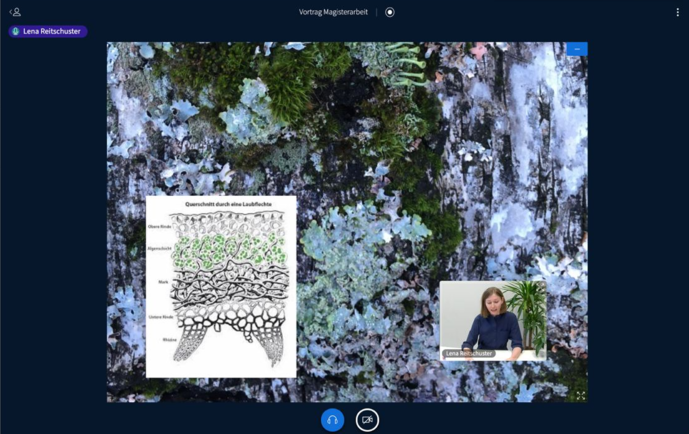

Holobiont
Paradigmensprenger und Prototyp eines neuen Weltverhältnisses– Ideengeschichte eines biologischen Terminus
In recent philosophical debates concerning the ecological crisis, two prominent thinkers Donna Haraway and Bruno Latour strongly argue for acknowledging sensitive dependencies on and entanglements with non-human entities. To describe how living and non-living beings bond, both apply the concept of the «holobiont». In the 1990s, biologist Lynn Margulis defined this term to describe whole symbiotic units, which are different species that live in a physically close relationship that is passed on to the next generation (e.g. lichens, corals, humans, and termites). The holobiont therefore transgresses species categories as manifested in the neat tree-shaped image of evolution, ideas of organic purity and individuality, and thus challenges the Darwinian principle of evolution, namely ‹competition›.
My thesis retraces the conceptual history of the holobiont from the end of the 19th century until its present uses. In analyzing the scientific, ideological, and philosophical discourses surrounding this term, the topic demanded an inquiry into the genesis of the discipline of biology and its connection to the development of the new synthesis, the story of the long marginalized symbiosis research, and the many far-reaching unreflected bonds between economic and social theories and biology. It turns out that throughout its entire conceptual history the holobiont was never a ‹neutral› scientific term. It was intentionally used to fight reductionist ideas of individualism in biology. Holobiont as a term and phenomenon drastically foregrounds – like the ecological crisis, too – the dependencies and entanglements we as humans find ourselves in, no matter if we benefit or suffer from them. Urgently we need to integrate this knowledge into politics to still have the freedom for necessary decisions before the distinction between freedom and necessity becomes obsolete and we are captured with future colonized by wrong decisions.
Lena Reitschuster (M.A.) ist akademische Mitarbeitende an der Hochschule für Gestaltung in Karlsruhe und Projektmanagerin beim Internationalen Filmfestival MA HD. Sie studierte Philosophie, Kunstwissenschaft und kuratorische Praxis an der HfG Karlsruhe und der New School in New York. Ihre Forschung ist an der Schnittstelle von Philosophie, Wissenschaftsgeschichte und Kunst angesiedelt.